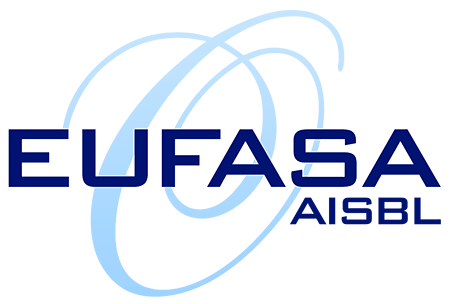
Paris 2022
CONFERENCE SUMMARY
The 38th annual EUFASA AISBL Conference took place in Paris on 2 and 3 May 2022. It brought together delegates of 19 EUFASA AISBL Affiliated Member Associations. The Dutch association was welcomed back as a returning Affiliated Member of EUFASA AISBL.
An initial “tour de table” gave the opportunity to all participating associations to give updates of their activities and achievements since the Lisbon Conference last year. The main topics mentioned by the delegates included increasing younger members’ involvement in associations, the offer of more language courses, negotiating training programmes for spouses in MFAs as well as introducing the online offer of cultural conferences, coaching sessions and courses on security, tax, finance and medical issues. Associations also highlighted updating their association’s database and reviewing their Statues and Rules of Procedure. Some associations drew attention to the productive collaboration with their FOs, setting up WhatApp groups both nationally and locally. Positive views were also shared concerning the creation of groups for foreign born diplomatic spouses and events for children (summer camps, preschool care.) The steps taken in terms of lobbying included negotiating for more bilateral agreements, pension reforms, unemployment benefits for spouses returning from posting. Concerning children, certain associations had succeeded in requesting that MFAs establish agreements with international schools in capital cities and facilitate policy for children with special needs.
EUFASA AISBL Working Group on Legal Matters (ELM)
EU (Chair), Austria, Belgium, France, Hungary, Italy, Switzerland
To comply with the mandates voted at the Lisbon conference in 2021, the working group (WG) presented the updates of the EUFASA AISBL Glossary and the Conference Planning Timeframe Document. The purpose of the updates was to reflect the new terminology in line with the Statues and Rules of Procedure and also the steps taken by the ELM to incorporate EUFASA as an AISB. The WG initiated a consultation process with delegations regarding the changes for both documents which were last updated in 2017. The structure and key changes were included in the presentation. For the Glossary, the necessity to add the new terms required to facilitate communication between members by providing common terminology for use in AISBL documents and at annual conferences. Concerning the Conference Planning Document, the key changes were to the existing templates and now include a 12 month pre- conference check list to improve user friendliness highlighting the logistics involved in organizing the Board Meetings and the annual General Assembly.
EUFASA AISBL Working Group on The Mobility of Children With Special Needs
Improving information for diplomatic families who have children with Special Educational Needs
UK (Chair) Czech Republic, Portugal, Switzerland
The presentation outlined the need for more information and better support for foreign service families who have children with disabilities and different needs to help them navigate international transfers. Based on the WG members’ extensive experience in 16 different countries with children with a wide range of additional needs (including autism, cerebral palsy, and Down syndrome among others), and on their experience supporting other international families with children with different needs, they developed a comprehensive guide titled “Tips for the international transfer process for foreign service families with children with disabilities and different needs”. The guide contains information on assessing schooling options, finding therapists and specialists abroad, navigating medication issues, and finding creative solutions. The guide also gives foreign service families ways to advocate for better support in their systems, and gives recommendations to MFAs, as well. Helpful resources in different languages are also provided. The guide is available to all foreign service families and MFAs from info@eufasa.org.
EUFASA AISBL Research Department (ERD)
Ireland (chair), Austria, Czech Republic, EU, Finland, Iceland, Switzerland, UK
The presentation firstly summarized the WG’s objectives which are to conduct quantitative and qualitative research to inform evidence-based policy making. The WG also endeavours to translate findings into policy recommendations and actionable information and collaborates with academic institutions. In 2022 the WG conducted a follow up survey on burn out and resilience following the pandemic and the impact of the war in Ukraine. The results demonstrated that overall resilience had improved since late 2020, burn out levels had fallen a few points but still remained high and remote work had now created new opportunities for MFA spouses and partners. The presentation included a list of relevant results for MFAs such as a need for information and clear guidelines in a timely manner, crisis training an access to vaccinations, health insurance and other preventative care measures. The results were translated into a policy paper with recommendations for MFAs on supporting partners and spouses during a crisis, which was distributed at the conference. The WG also presented a document entitled “Research Basics for EUFASA partners’ and spouses associations” with practical tips and information for carrying out surveys.
EUFASA AISBL Working Group on the UN Agenda 2030 : A Call to Action: From Mediation & UNSCR 1325 to the UN Agenda 2030
Italy (chair) Belgium, France
The WG, which was established in 2019, firstly presented an overview of the cycle of webinars which were proposed by the Italian Association in partnership with Luiss University in Rome to the spouses partners of EUFASA Affiliated Members this year. The presentation focused on the 17 Sustainable Development Goals (SDGs) as defined by the UN Agenda 2030. The presentation went on to outline the major events and summits towards 2030 which focus on 5 Pillars: People, Planet, Prosperity, Peace & Partnership. The Italian association, gave, moreover, examples of best practices which they have introduced, with a view to achieving sustainable development goals at a local level. These include recycling, progressively eliminating hard copies, using low consumption of light bulbs, encouraging members to car share. The association’s involvement with other diplomatic institutions in Rome such as Farnesina Verde and Retake Roma, was also presented. The list of objectives of the United Nations Environment Programme, entitled Greening the Blue, was brought to the attention of delegates in order to initiate a call to action for all EUFASA Member Associations to implement the 17 SDGs of the UN Agenda.
EUFASA AISBL Working Group – Welcome Team (EWT)
EU, Finland, Italy, Spain
The WG, which was established in 2019, firstly presented an overview of the cycle of webinars which were proposed by the Italian Association in partnership with Luiss University in Rome to the spouses partners of EUFASA Affiliated Members this year. The presentation focused on the 17 Sustainable Development Goals (SDGs) as defined by the UN Agenda 2030. The presentation went on to outline the major events and summits towards 2030 which focus on 5 Pillars: People, Planet, Prosperity, Peace & Partnership. The Italian association, gave, moreover, examples of best practices which they have introduced, with a view to achieving sustainable development goals at a local level. These include recycling, progressively eliminating hard copies, using low consumption of light bulbs, encouraging members to car share. The association’s involvement with other diplomatic institutions in Rome such as Farnesina Verde and Retake Roma, was also presented. The list of objectives of the United Nations Environment Programme, entitled Greening the Blue, was brought to the attention of delegates in order to initiate a call to action for all EUFASA Member Associations to implement the 17 SDGs of the UN Agenda.
EUFASA AISBL Working Group on Work & Employment (EWE)
EU & Germany (co-chairs) Austria, Hungary, Italy, Spain
The presentation focused on the results of the survey sent to associations on the topic of “Online employment options for spouses and partners : challenges and ways forward.” The survey was designed as a preliminary investigation to gain insight into the opportunities and challenges for working online when posted abroad. The subject was chosen because of the Covid 19 pandemic and the expansion of online work in many areas of employment. The results of the survey firstly revealed that 58% of respondents felt that seeking for a job abroad is challenging due to local regulations, language barriers and lack of work experience. The survey also clearly demonstrated that 85% of respondents indicated that their MFA does not offer sufficient support, information or incentives to help support a career change when on post. In theory, online work is enabling more spouses and partners to keep their jobs, however, none of the bilateral work agreements in place relate to online work and there are no specific guidelines from MFAs.
Collaborative Session with the Family Officers with the invited FOs from
Austria, Czech Rep, Estonia, EU, France, Germany, Luxembourg, the Netherlands, Spain, Switzerland, UK
The French Presidency of the 2022 annual conference welcomed the opportunity to meet the Family Officers (FOs) from 11 EUFASA AISBL Member States in order to discuss how to work together to support diplomatic spouses and partners. In preparation for the meeting, the EUFASA AISBL Board asked FOs to fill in a questionnaire covering a range of subjects, including specific tasks, the relationship with MFA unions, if contact can be directly established with spouses/partners and who are considered to be the main stakeholders for family polices within MFAs. It was decided that the topic of the session would be “How to increase the outreach and establish a direct communication channel between diplomatic partners and MFA / FOs and FAs.” The results of the survey was that FOs consider that it is part of their job description to be a point of contact for families (MFA Officers and spouses/partners) and also for FAs. In a majority of cases the relationship between the FAs and the FOs is not officially defined or codified. Furthermore, some FAs receive some form of financial support from their MFA. However, for other associations, this support only covers travel expenses for EUFASA conference participation. Most FOs do not have access to the contact details of spouses and partners. Some stated that collecting such data would be in breach of GDPR. For FOs the most common issues of concern for spouses/partners are employment and schooling but they also see their role in terms of providing information in the event of crises. With a view to improving the collaboration and exchange of information, FAs are invited to attend the monthly meeting of the EU FOs.
The signing of the EUFASA AISBL “Declaration of Rights of Foreign Service Families.”
At the Lisbon conference in 2021, 18 EUFASA AISBL Associations formally adopted the “Declaration of Rights of Foreign Service Families”, a non-legally binding document harmonizing the standards and the practices related to the State administrations and Foreign Service families. The document was formally signed by each Member Association present except Finland.
Conference closing:
Mrs. Agnès Romatet-Espagne, Director of Human resources at the French MFA delivered the closing speech. She first highlighted the importance of the EUFASA Research Department in proposing new areas of cooperation so that better support could be provided to spouses, partners and families of diplomats. She then shared some of the concerns that she believes could be the next areas of research for ERD. The Covid pandemic, the repeated international crises, the arrival in the labor market of new generations with different aspirations, the geopolitical instabilities, the diversity of family units, as well as other factors, have accelerated and emphasized changes which we must take into account in human resources and family policies. In this context, she said, there are two challenges : First, to document these new trends and second, to share ideas and feedback for future cooperation between MFAs and the EUFASA AISBL network.
